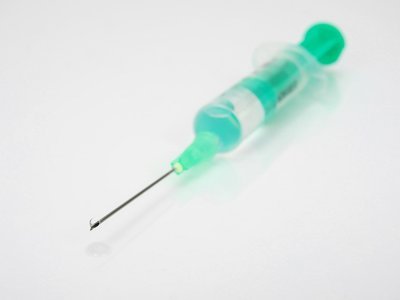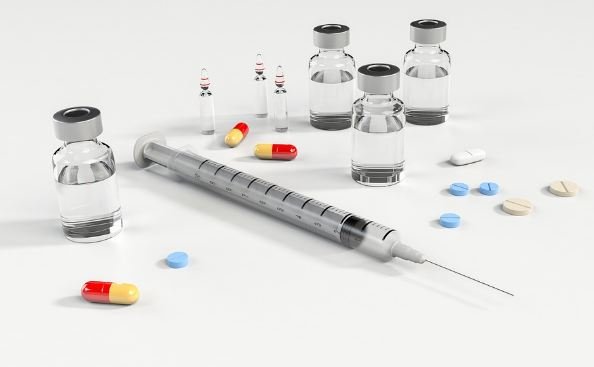Vaccines are an essential tool in preventing deadly diseases. By imitating an infection, vaccines teach the immune system how to fight off future infections. Today, there are five main types of vaccines, including live attenuated vaccines and inactivated vaccines. It typically takes a few weeks for the body to produce enough protective cells after vaccination, so it is still possible to become infected just before or after vaccination. However, vaccines are the safest way to protect against disease, reducing the risk of serious illness even if someone does become infected. Vaccines are an important part of global health and development, preventing millions of deaths every year from diseases like diphtheria, tetanus, pertussis, influenza, and measles. [1][2]
Immunizations create immunity
Immunizations create immunity by mimicking an infection and teaching the immune system to fight off future infections. By introducing a weakened or inactivated germ into the body through a vaccine, the immune system is triggered to produce antibodies that protect against the disease. Although vaccines are not perfect, they are the safest way to protect a person from a disease. Getting vaccinated not only protects the individual, but also helps protect unvaccinated people through community immunity. Vaccines are readily available and covered by insurance, making it easy to receive immunizations and prevent serious illness. [3][4]
Natural immunity may not be sufficient
According to factual data, natural infection may not provide sufficient immunity compared to vaccines. While natural infection often results in better immunity, it can come at a cost of serious health consequences such as pneumonia, intellectual disability, birth defects, cancer, or even death. Vaccines, on the other hand, provide long-lasting immunity with lesser quantities of virus or bacteria. Also, when vaccinated, the exposure to viruses or bacteria occurs in a controlled manner, while natural exposure is unpredictable. Therefore, vaccines can be a safer and more effective way to protect against diseases than relying on natural immunity. [5][6]
Mild side effects of vaccines are common
According to factual data from official government organizations, mild side effects from vaccines are common. These side effects serve as a sign that the body’s immune system is responding to the vaccine, gearing up to fight the virus and building immunity without actually getting sick. Mild-to-moderate side effects like a low-grade fever, muscle aches, or pain at the injection site typically go away on their own after a few days. Serious side effects are extremely rare, and if experienced, individuals should seek immediate medical attention. It’s important to remember that getting vaccinated is much safer than getting the diseases vaccines prevent. [7][8]
Severe side effects of vaccines are extremely rare
According to official government organizations, severe side effects from vaccines are extremely rare. In fact, if one million doses of a vaccine are given, only one to two people may experience a severe allergic reaction. Signs of a severe allergic reaction may include swelling of the face and throat, or a bad rash all over the body. If anyone experiences a severe allergic reaction, they should call 9-1-1 or go to the nearest hospital immediately. It’s important to note that getting vaccinated is much safer than getting the diseases vaccines prevent. People who have concerns about the possible side effects of vaccines should talk to their doctor. [9][10]
Vaccines benefit entire communities
Vaccines not only benefit individuals who are vaccinated, but also entire communities. Vaccination creates herd immunity, which means that when a high percentage of people in a community are vaccinated, the spread of the disease decreases. This benefits vulnerable populations such as infants, elderly, and immunocompromised individuals, who may not be able to receive vaccines. Vaccines have successfully eradicated diseases like polio and smallpox and significantly reduced the incidence of many others. Though vaccines may come with some risks of adverse reactions, their benefits in preventing disease and saving lives make them an important public health intervention. [11][12]
Low vaccination rates increase risk of outbreaks
Low vaccination rates increase the risk of outbreaks of vaccine preventable diseases. Vaccination is one of the most effective ways to prevent the spread of disease and protect individuals from severe illness and even death. In South Carolina, there were nearly 7800 reports of vaccine preventable diseases in 2016. The elderly and young children, who are more vulnerable to complications from vaccine preventable diseases, are at the highest risk. Although vaccines do have some risks for adverse reactions, severe complications are rare, and the benefits of vaccination outweigh the risks. Low vaccination rates can lead to outbreaks of diseases like measles, which can have devastating consequences for communities with low vaccination rates. [13][14]
About the Author
Reyus Mammadli is the author of this health blog since 2008. With a background in medical and biotechnical devices, he has over 15 years of experience working with medical literature and expert guidelines from WHO, CDC, Mayo Clinic, and others. His goal is to present clear, accurate health information for everyday readers — not as a substitute for medical advice.







